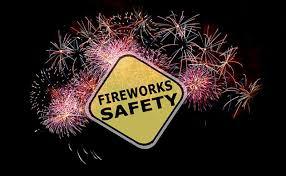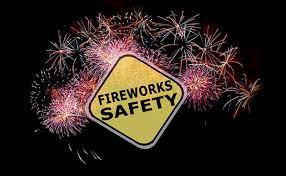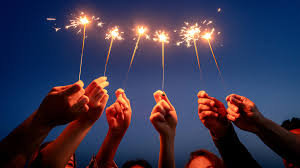
BEDFORD – Emergency rooms will see an uptick in injuries on the Fourth. Fireworks injuries are among the most common reasons for ER visits.

In 2023, CPSC received reports of eight deaths and an estimated 9,700 injuries involving fireworks. Out of the eight deaths, five were associated with firework misuse, two with a device malfunction, and one involved unknown circumstances.
The report shows that injuries from fireworks increased overall between 2008 and 2023, despite recent data showing a steady decline since the peak in 2020 during the pandemic when public displays were canceled.
- Teenagers ages 15 to 19 years of age had the highest estimated rate of emergency department-treated, fireworks-related injuries, with children ages 5-9 years old having the second highest rate.
- An estimated 800 emergency department-treated injuries were associated with firecrackers and 700 with sparklers. Even though sparklers are fun, they’re not the safest option for your children. They can burn at 1,200 degrees Fahrenheit.
- The parts of the body most often injured by fireworks were the hands and fingers, an estimated 35 percent of injuries, and injuries to the head, face, and ears, an estimated 22 percent.
- About 42 percent of the emergency department-treated fireworks-related injuries were for burns.
- In the fiscal year 2023, approximately 18% of selected and tested fireworks products were found to contain noncompliant components, including fuse violations, prohibited chemicals, and pyrotechnic materials overload.

CPSC urges consumers to celebrate safely this holiday by following these safety tips:
Tips to Celebrate Safely
- Never allow children to play with or ignite fireworks, including sparklers. Sparklers burn at about 2,000 degrees Fahrenheit—hot enough to melt some metals.
- Make sure fireworks are legal in your area. Only purchase and set off fireworks labeled for consumer (not professional) use.
- Never use fireworks while impaired by alcohol or drugs.
- Keep a bucket of water or a garden hose handy in case of fire or other mishap.
- Light fireworks one at a time, then move back quickly.
- Never try to relight or handle malfunctioning fireworks. Soak them with water and throw them away.
- Never place any part of your body directly over a fireworks device when lighting the fuse. Move to a safe distance immediately after lighting fireworks.
- Never point or throw fireworks (including sparklers) at anyone.
- To prevent a trash fire, douse the spent device with plenty of water from a bucket or hose before discarding the device.



